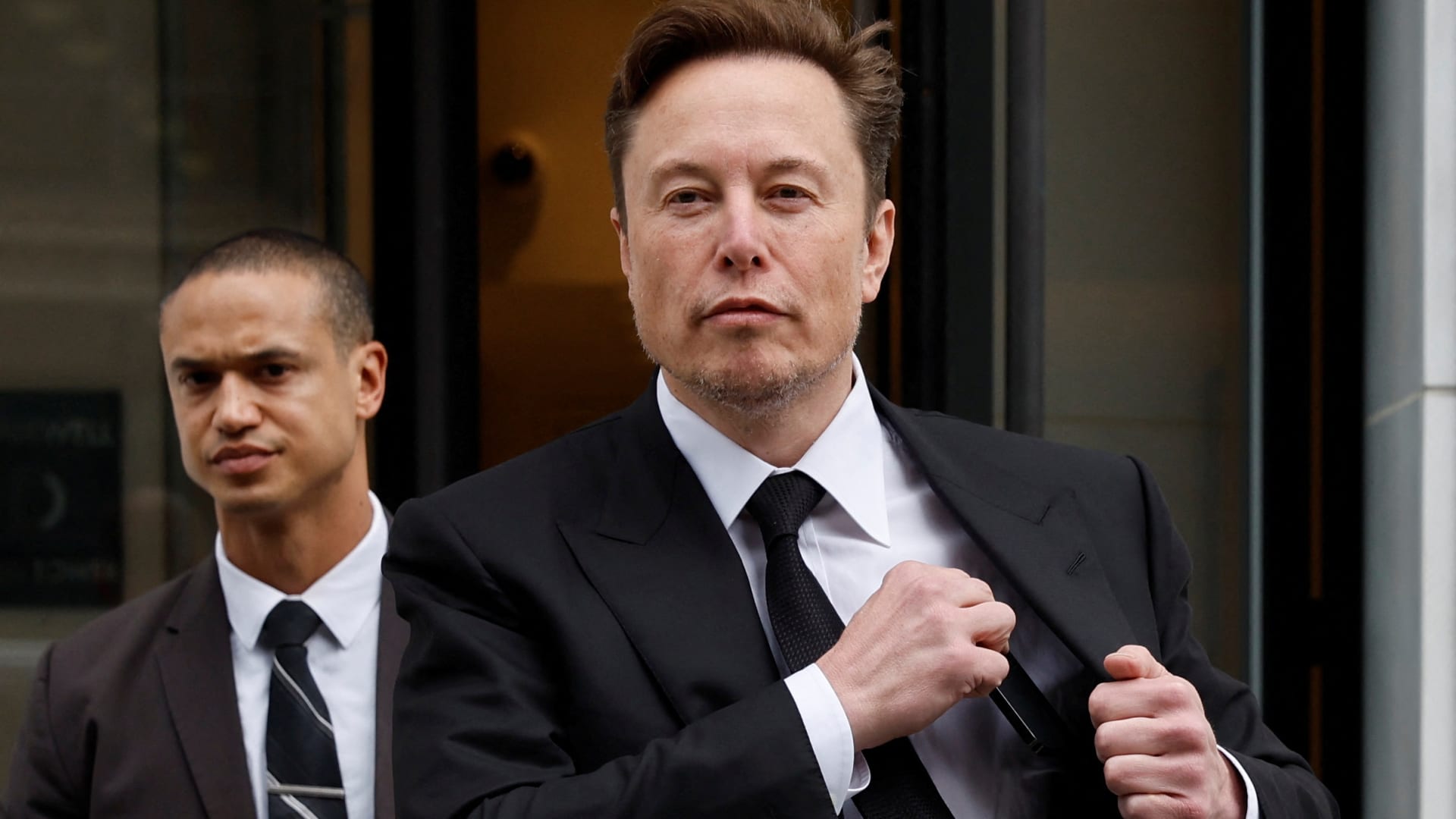Elon Musk’s brain-computer interface company Neuralink is being investigated by the U.S. Department of Transportation for allegedly packaging and transporting contaminated hardware in an unsafe manner, a DOT spokesperson confirmed to CNBC.
In a letter to Transportation Secretary Pete Buttigieg Thursday, the animal-welfare group Physicians Committee for Responsible Medicine said it obtained public records that suggest Neuralink may have mishandled devices carrying infectious pathogens that posed risks to human health in 2019.
The devices were removed from the brains of nonhuman primates and may have been contaminated with viruses like Herpes B and antibiotic-resistant bacteria like Staphylococcus and Klebsiella, according to the letter. PCRM claimed the materials were not properly contained or transported, possibly because Neuralink employees had not received proper safety training.
A DOT spokesperson told CNBC it is “standard practice” to investigate alleged violations of hazardous materials transportation regulations. The Pipeline and Hazardous Materials Safety Administration, part of the DOT, is conducting a “standard investigation to ensure compliance and the public safety of workers and the public” based on the information it received from PCRM, the spokesperson said.
Representatives from Neuralink did not respond to requests for comment.
Neuralink is one of many companies in the emerging brain-computer interface, or BCI, industry. A BCI is a system that deciphers brain signals and translates them into commands for external technologies, allowing patients to move cursors, type and even access smart home devices using only their minds. Several companies have successfully created devices with these capabilities.
Musk, who is also CEO of Tesla, SpaceX and Twitter, co-founded Neuralink in 2016 with a group of scientists and engineers. The company is developing a BCI that is designed to be inserted directly into the brain tissue, and while it is not testing its device in humans yet, Musk has said he hopes to do so this year.
The public records obtained by PCRM, which were reviewed by CNBC, include emails exchanged between Neuralink and the University of California, Davis. The university partnered with Neuralink between 2017 and 2020 to help the company conduct experiments on primates.
In one exchange in March of 2019, a UC Davis staffer, whose name is redacted, wrote in an email that hardware had been handled incorrectly, and the transportation of hazardous materials needed to be performed by a trained hazardous material handler.
The staffer wrote that if Neuralink employees had not completed the necessary training, UC Davis personnel were “always happy” to package and ship materials.
“Since the hardware components of the explanted neural device are not sealed and it was not disinfected prior to leaving the Primate Center, this presents a hazard for anyone potentially coming in contact with the device,” the UC Davis staffer said in the email. “Simply labeling it ‘hazardous’ doesn’t account for the risk of potentially contracting Herpes B.”
In another instance in April of 2019, a UC Davis staffer, whose name is redacted, wrote in an email that three explanted devices had arrived in an “open box with no secondary container.” The staffer noted that the uncontained, monkey-contaminated hardware put members of the Primate Center at risk.
“This is an exposure to anyone coming in contact with the contaminated explanted hardware and we are making a big deal about this because we are concerned for human safety,” the staffer said in the email.
PCRM obtained these records from UC Davis through a public information request. Since Neuralink is a private company, it is not subject to public records laws. Representatives from UC Davis did not respond to requests for comment.
PCRM opposes the use of animal testing in medical research, and the group has raised concerns about Neuralink before. In February 2022, the group filed a complaint with the U.S. Department of Agriculture alleging that Neuralink had violated the Animal Welfare Act during its partnership with UC Davis. The complaint was referred to the USDA Inspector General, who has allegedly launched a federal probe into the company, according to a Reuters report.
The advocacy group also asked the U.S. Food and Drug Administration in December to investigate Neuralink for possibly violating good laboratory practices.
Representatives from the USDA and FDA did not respond to requests for comment.
Ryan Merkley, director of research advocacy at PCRM, said the latest investigation by the DOT suggests Neuralink has been “sloppy in a whole new way,” he told CNBC. He said there is no evidence that anyone was infected because of exposure to the hardware, but that the concerned tone of UC Davis personnel in the emails “reflects the seriousness of this potential pathogen leak.”
“This is a whole other thing that obviously affects not only the animals involved, but the people working at Neuralink, the people working at UC Davis and everyone they came in contact with,” he said.

